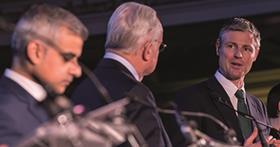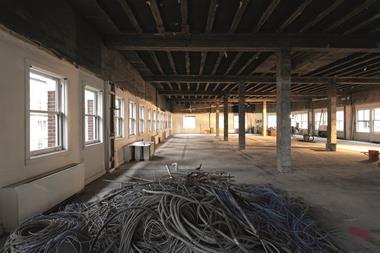It was fantastic to see you focusing on housing in your coverage of the recent LandAid Mayoral Debate (‘Battle for mayor of London heats up’, 24.02.16, PropertyWeek.com) - and rightly so when one stops to consider the challenges facing our capital.

However, it is also frustrating that all of the candidates again refused to look beyond the status quo on options available for delivering both an uptake in housing numbers and a choice of housing type.
Sweating public assets, as Sadiq Khan suggests, or Zac Goldsmith’s focus on regenerating housing estates are both worthy policies, but they will not go far enough to build the level and breadth of homes that Londoners need. Moreover, both are already being relied upon by boroughs to meet housing targets.
Khan was right to say that families often want a house with a garden. But it is misleading the public to suggest these homes will be provided through a sole reliance on brownfield land within the constrained urban fabric of London. This does not mean concreting over our countryside, but it does mean adopting a managed, sustainable release of land.
A poll carried out by Property Week last year (‘Open up the green belt to housebuilding’, 04.09.15) shows that 74% of the industry are in agreement on this point.
The next mayor will have to face up to four big challenges when it comes to a housing strategy: convincing communities that tall buildings are an inevitable part of London’s future; working with the boroughs to deliver a managed release of employment land for housing; convincing outlying authorities to accommodate some of London’s housing requirement; and deciding whether or not to grapple with the thorny topic of London’s green belt.
Sticking to the current rhetoric will set London on a course of a continued undersupply of housing, house price and rent inflation, and a virtual reliance on flatted developments. There has never been a more crucial time for London’s mayor to display true leadership on what the capital needs.
Ian Anderson, executive director, Iceni Projects






























No comments yet